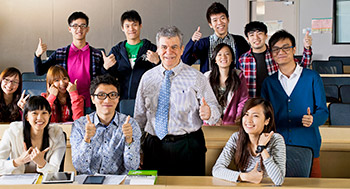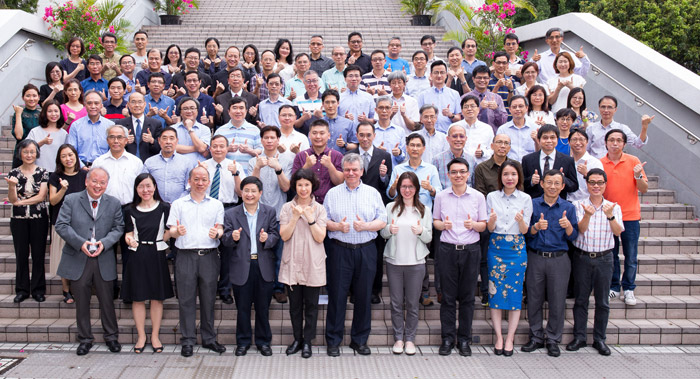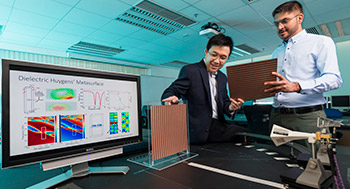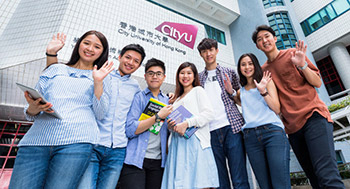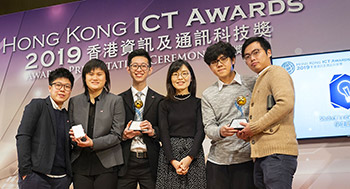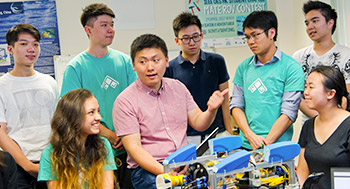Main navigation
- Advising
- Master’s Programme (MSc)
- Research Degrees (PhD/MPhil)
- Undergraduate
- Opportunities
- Teaching and Research Facilities
- Life
- Career
Teaching Laboratories
Applied Electromagnetics Laboratory
The Applied Electromagnetic Laboratory, equipped with EM software and various teaching kits, supports teaching in topics related to antenna designs, RF circuit designs, millimeter-wave applications and terahertz investigations. Students can study EM waves through simulations and verify theory with the lab facilities . Laboratory sessions of the following courses are normally scheduled in the Lab.
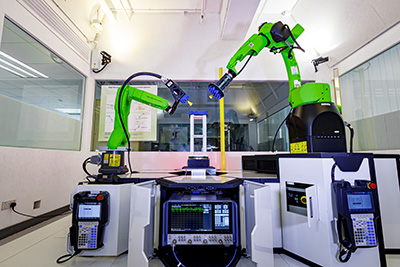
- EE3109 Applied Electromagnetics
- EE4036 Wireless Communications
- EE4107 - 5G Circuit Design
- EE4108 Antenna for Wireless Communications and Sensing Connectivity
- EE5425 Fundamentals of Radio Frequency (RF) Circuit Engineering
- EE5435 Advanced Topics in Applied Electromagnetics
- EE6680 Dissertation
- EE6619 Antenna Design for Wireless Communications
- Final Year Project
Computer Networking Laboratory
The Computer Networking Laboratory is equipped with general computing equipment and switches/routers to provide laboratory supports for the teaching and training of computer networking and related subjects. Students can acquire hands-on experiences on the configuration and analysis of computer networks. Laboratory sessions forthe courses including EE3009 Data Communications and Networking, EE3315 Internet Technology, and EE5412 Telecommunication Networks are normally scheduled there.
Control Systems Laboratory
The Control Systems Laboratory aims to assist and promote teaching and experimental research in various fields, including automatic control, robotics, wireless and networked control systems, complex networks, optimization, computational intelligence, nonlinear systems, and circuit design. It serves as a base for conducting interdisciplinary research in systems engineering, focusing on advanced theoretical development and practical design. Additionally, it supports quality teaching in EE department by offering core and elective courses at both the undergraduate and master's degree levels. These courses include EE2800 Semiconductor Physics for Engineers, EE3122 Analogue Circuit Fundamentals , EE3114 Systems and Control,EE3070 Design Project , EE3800 Semiconductor Materials and Devices and EE4090 Engineering Training .
Digital system Laboratory
The Digital Systems Laboratory is dedicated to the teaching of digital electronic technologies, especially those related to microprocessors and microcontrollers. It provides laboratory support for undergraduate courses such as EE2004 Microcomputer Systems and EE3220 Embedded Systems Design, aiming at enhancing students' practical skills in both hardware and software development of microprocessors. In addition to basic equipment like personal computers, digital oscilloscopes and logic analyzers, the Lab is equipped with digital circuit learning tools such as field programmable gate array (FPGA) training boards, in-circuit emulators, microcontroller soft core and interface, etc. With these tools and equipment, students are able to acquire the knowledge of microprocessor design and applications, for further extension to system-on-chip integration.

Electronic Circuit and Projects Laboratory
The Electronic Circuits and Projects (ECP) Laboratory is a cozy corner of the campus that has been supporting the hands-on learning experience of first-to third -year courses for EE majors. It serves as a hub for our undergraduate students who are new to electronics, providing them with the opportunity to build their very first circuit and discover the excitement of electronics. Over the years, the ECP Laboratory has witnessed the growth of numerous students from electronics novices to application-driven product designers. Equipped with all the necessary instrumentation hardware, it also supports our signature GE course,namely, GE1354 Introduction to Electronic Design.
Machining Laboratory
The Machining Laboratory provides support for teaching and research activities, as well as offering advice and assistance to other sections within EE department as needed. The laboratory is equipped with a variety of machining equipment, including lathe, milling machine, drilling machine, and wire cut machine. The wire cut machine is used to fabricate precision parts for experiments, such as antenna patches and optical fixtures. Additionally, jigs and fixtures are designed for various experiments and research projects. In terms of teaching, technical support is provided for the course EE3070 Design Project and competition teams. In the safety course, students and staff are taught how to use hand tools and are provided with basic mechanical knowledge, while also emphasizing the importance of safety measures and alerting them to potential hazards.
Optoelectronics, Electronics, Nanotechnology, and Biosystems Laboratory
ROBOCON Contest Team Laboratory
ROBOCON Contest Team Laboratory is a space where students from different departments collaborate to design and build robots for an annual competition among Hong Kong's tertiary institutions. Equipped with various tools, resources, and expert guidance, the lab supports every step from prototyping to implementation. This multi-disciplinary environment helps students tackle real-world challenges while sharpening problem-solving, teamwork, and leadership skills. Beyond technical development, the lab fosters innovation, creativity, and hands-on experience, preparing students for future engineering careers.
It’s more than a workspace — it’s a hub for learning, collaboration, and pursuing a shared passion for robotics.

Underwater Robotics Team Laboratory
Underwater Robotics Team Laboratory aims at providing a co-working space for CityU students to achieve international recognition in global and national competitions, to encourage cross-disciplinary working environment, and ultimately to apply what we have learned in CityU to solve real-life problems using Robotics/ AI / Electronics Mathematics technology and knowledge. Every year, the robots developed in this lab will join the MATE ROV competition, the Singapore AUV Challenge and other competitions. With the strong support from CityU including College of Engineering, Department of EE, CS, MNE, BME, MSE, SDSC and SDS, we are committed and confident to advance our work and to gain recognitions around the world.

Last Updated : 28 Aug 2025
